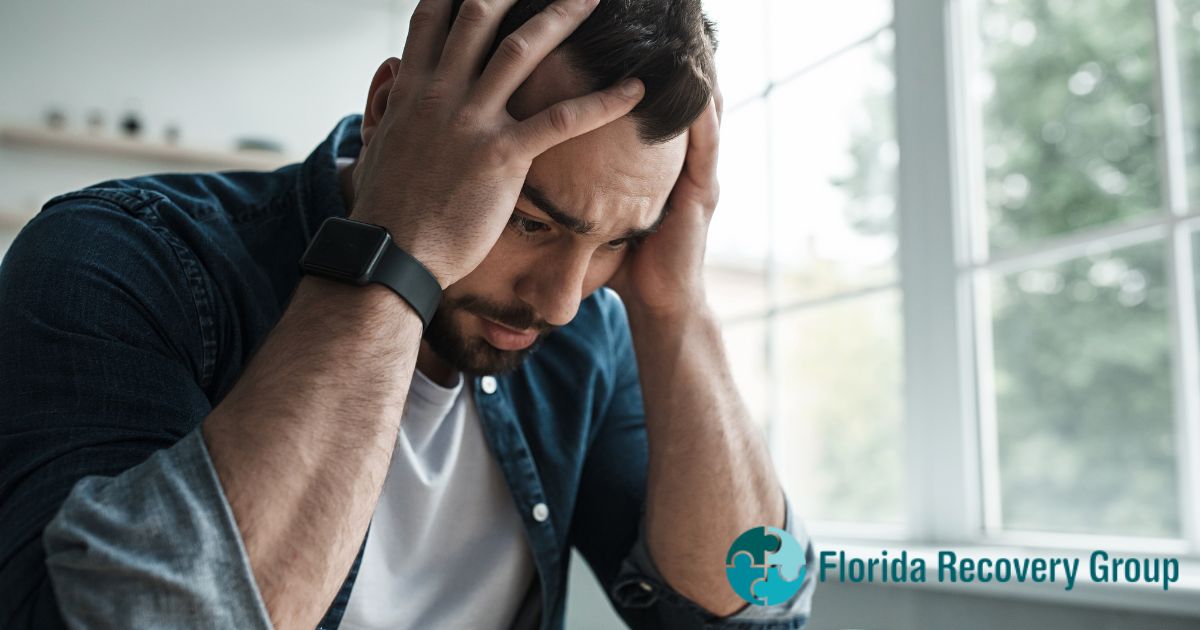
15 Sep The Connection Between Social Anxiety and Substance Abuse
Social anxiety is a common mental health condition that affects your ability to function in social situations. As a result, individuals with social anxiety may turn to substances to help them cope with their symptoms. Sadly, this can lead to the development of a co-occurring substance use disorder.
According to the Substance Abuse and Mental Health Services Administration (SAMHSA), “approximately 9.2 million adults in the United States have a co-occurring disorder.”[1]
When you have co-occurring conditions like social anxiety disorder and addiction, you must receive treatment for both illnesses at once. Thankfully, dual-diagnosis rehab programs can provide you with the support and tools you need to achieve long-lasting recovery.
What is Social Anxiety Disorder?
Do you have a strong fear of being judged by other people? Do you find it difficult to be yourself in social settings? If so, you could be struggling with social anxiety disorder.
Social anxiety disorder is a mental health condition that makes it hard to cope in social situations out of an intense fear of being judged, ridiculed, or perceived by others. The symptoms of this condition can make daily activities like going to work, school, or hanging out with friends difficult.
According to the Anxiety and Depression Association of America (ADAA), 15 million people struggle with social anxiety disorder in the United States.[2]
While some people with social anxiety can complete daily tasks, they do so while under immense stress. This can lead to burnout and the development of unhealthy coping mechanisms to make it through the day.
The Symptoms of Social Anxiety Disorder
If you are worried that you suffer from a social anxiety disorder, being aware of the symptoms can help you determine whether it’s time to seek professional help. With a combination of therapy, building new coping mechanisms, and medications, you can learn to manage the symptoms of social anxiety.
People with social anxiety might have a hard problem with the following events:
- Going to parties or other social events with large groups of people
- Eating or drinking in public
- Meeting new people
- Speaking in front of people
- Using public restrooms
In these situations, people with social anxiety might experience the following symptoms:[3]
- Excessive sweating or trembling
- Increased heart rate or palpitations
- Shortness of breath
- Dizziness or lightheadedness
- Feelings of detachment
- Feeling sick to their stomach
- Having a hard time making eye contact with strangers
- Feeling self-conscious or embarrassed
How are Social Anxiety and Substance Use Disorder Connected?
Social anxiety disorder and addiction often co-occur because consuming certain substances can lower inhibitions and make it easier to communicate with others. While using substances might help temporarily, using drugs or alcohol in this manner can lead to addiction and worsened mental health symptoms.
According to the ADAA, about 20% of people with social anxiety disorder also suffer from alcoholism.[4]
If you use drugs or alcohol to cope with the symptoms of your social anxiety, you are at an increased risk of developing a substance use disorder. Common signs of addiction include being unable to control or stop your substance use, needing more of a substance to experience an effect, and experiencing symptoms of withdrawal when you do not consume alcohol or drugs.
How Does Treatment for Social Anxiety and Addiction Work?
If you struggle with co-occurring social anxiety disorder and addiction, you must receive treatment for both conditions at once. For example, if you only treat your addiction, you will eventually experience a relapse that stems from unmanaged symptoms of social anxiety.
Thankfully, dual-diagnosis treatment centers combine traditional addiction treatment methods with evidence-based mental health services. As a result, you will develop the skills and receive the support you need to recover from both of your conditions at the same time.
During dual diagnosis treatment for social anxiety and addiction may involve:
- Medical detox to overcome drug and alcohol withdrawal
- Individual therapy to help you develop healthy coping mechanisms
- Group counseling for support and the development of effective emotional regulation skills
- Medications to manage symptoms of social anxiety or prevent addiction relapse
- Aftercare planning to ensure you are ready to remain sober outside of a treatment facility
These services can help you learn how to stay sober from drugs and alcohol while managing your social anxiety in healthy ways.
Find Help for Co-Occurring Social Anxiety Disorder and Addiction
If you or a loved one suffers from co-occurring social anxiety and substance use disorder, it’s time to seek help. Dual-diagnosis addiction treatment centers can provide you with treatment that targets both of your conditions at once, helping you establish a strong foundation of recovery to rely on.
To learn more about how we can connect you with a reputable dual diagnosis rehab center, contact Florida Recovery Group today.
References:
- The Substance Abuse and Mental Health Services Administration (SAMHSA): Co-Occurring Disorders and Other Health Conditions, Retrieved September 2023 From https://www.samhsa.gov/medications-substance-use-disorders/medications-counseling-related-conditions/co-occurring-disorders
- The Anxiety and Depression Association of America (ADAA): Anxiety Disorders Facts & Statistics, Retrieved September 2023 From https://adaa.org/understanding-anxiety/facts-statistics
- The Anxiety and Depression Association of America (ADAA): Social Anxiety Disorder Symptoms, Retrieved September 2023 From https://adaa.org/about-adaa/press-room/multimedia/social-anxiety-symptoms
- The Anxiety and Depression Association of America (ADAA): Social Anxiety Disorder and Alcohol Abuse, Retrieved September 2023 From https://adaa.org/understanding-anxiety/social-anxiety-disorder/social-anxiety-and-alcohol-abuse





